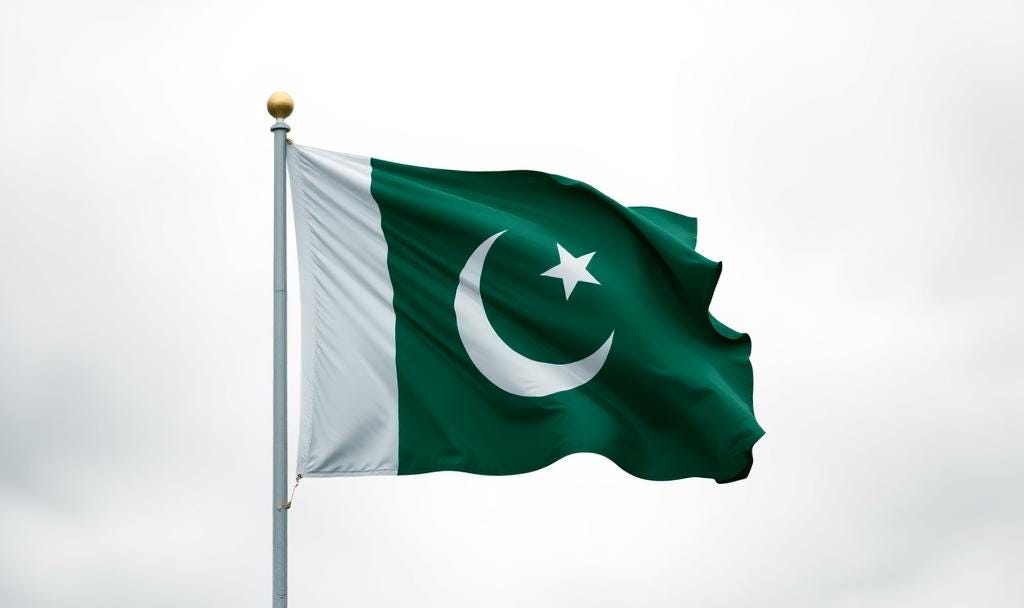Can Pakistan use national unity momentum to curb terrorism once and for all?
Because only a Pakistan that is secure, just, and engaged with its neighbors can hope to be economically vibrant and globally relevant
In the aftermath of Pakistan’s recent military successes on the eastern front and its growing diplomatic clout — underscored by its appointment as Vice Chair of the UN Security Council's Counter-Terrorism Committee — the nation stands at a crossroads. For the first time in years, there is a renewed sense of national unity, a rare political and public consensus centered around sovereignty, resilience, and the need for lasting peace.
The question now is: Will Pakistan seize this moment not only to defend its borders but also to defend its soul from within?
From External Defense to Internal Cleansing
While Pakistan’s armed forces have admirably defended the nation from foreign aggression, the real battle for Pakistan’s future lies within — in its ability to decisively confront homegrown extremism and fringe ideologies that undermine both national and international credibility.
Groups like Tehreek-e-Labbaik Pakistan (TLP), which misuse blasphemy laws to terrorize minorities and paralyze cities, have inflicted deep wounds on the country’s democratic fabric. Their intimidation tactics not only endanger citizens but also present Pakistan as a state unable — or unwilling — to curb radical forces. Similarly, factions that exploit sectarianism, indulge in cross-border terror, or operate under the guise of religious activism, continue to compromise Pakistan’s international standing and threaten internal harmony.
Now that Pakistan has regained some diplomatic space and visibility in global anti-terror forums, it must go beyond symbolic actions. It must dismantle the networks and narratives that have allowed extremist ideologies to thrive under political cover or state appeasement.
A Call to Rethink Priorities
Too often, Pakistan's state machinery has focused its coercive power not on terrorists, but on journalists, rights activists, politicians, and dissenters — voices that are vital for any democracy. This misplaced priority only deepens internal divisions and obscures the real threat: those who use fear, violence, and religion to destabilize society.
If Pakistan truly wants to be secure, it must be secure for all its citizens — regardless of faith, ethnicity, gender, sexuality, or ideology. A prosperous Pakistan is not just one where bombs don’t go off, but one where civil rights are respected, where minorities feel safe, and where freedom of expression is not mistaken for sedition.
The Path to Sustainable Peace
To win lasting peace, Pakistan must also pursue regional reconciliation. Peace with neighbors — particularly India, Afghanistan, and Iran — will not come easy, but neither will prosperity without it. Pakistan must engage honestly and comprehensively with its neighbors, especially on issues like cross-border terrorism, mutual mistrust, and trade barriers.
A strong, unified, and credible Pakistan cannot afford to be seen as harboring or tolerating elements that sabotage peace efforts — at home or abroad. Its role in regional stability must be underpinned by principled diplomacy, not proxy politics.
Pakistan is faced not only with challenges but also an opportunity — a window where military momentum, diplomatic recognition, and domestic consensus align. But such windows close quickly. If Pakistan is to rise as a secure, respected, and modern nation, it must prioritize rooting out homegrown extremism, uphold civil liberties, and commit itself to regional peacebuilding.
Because only a Pakistan that is secure, just, and engaged with its neighbors can hope to be economically vibrant and globally relevant.
The author is Berlin-based social work student, former Pakistani journalist, editor indus.news, and member of Germany's social democrats party. He continues to actively comment on culture, geopolitics, and human rights.



